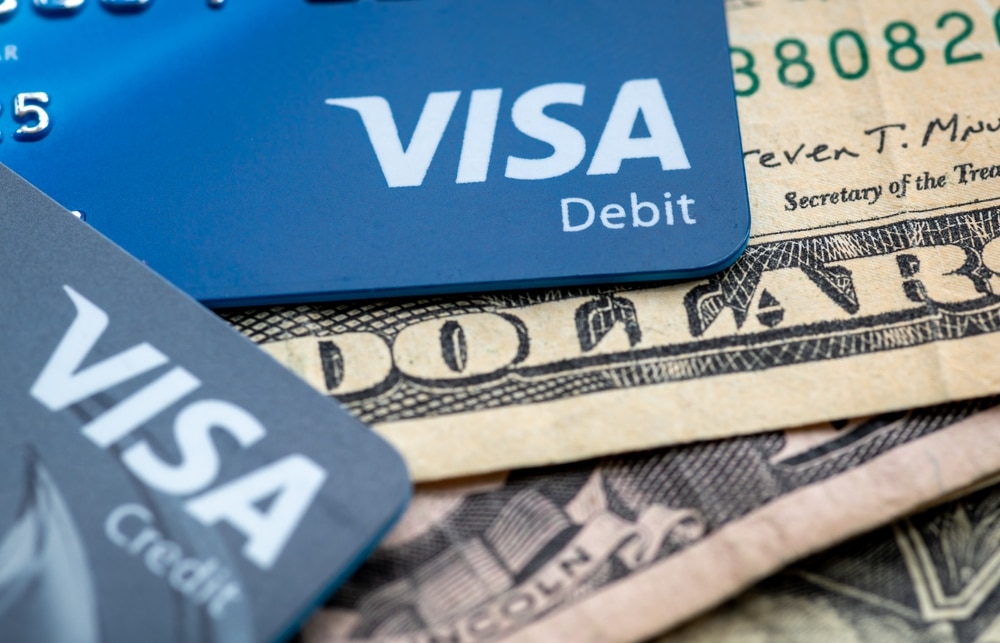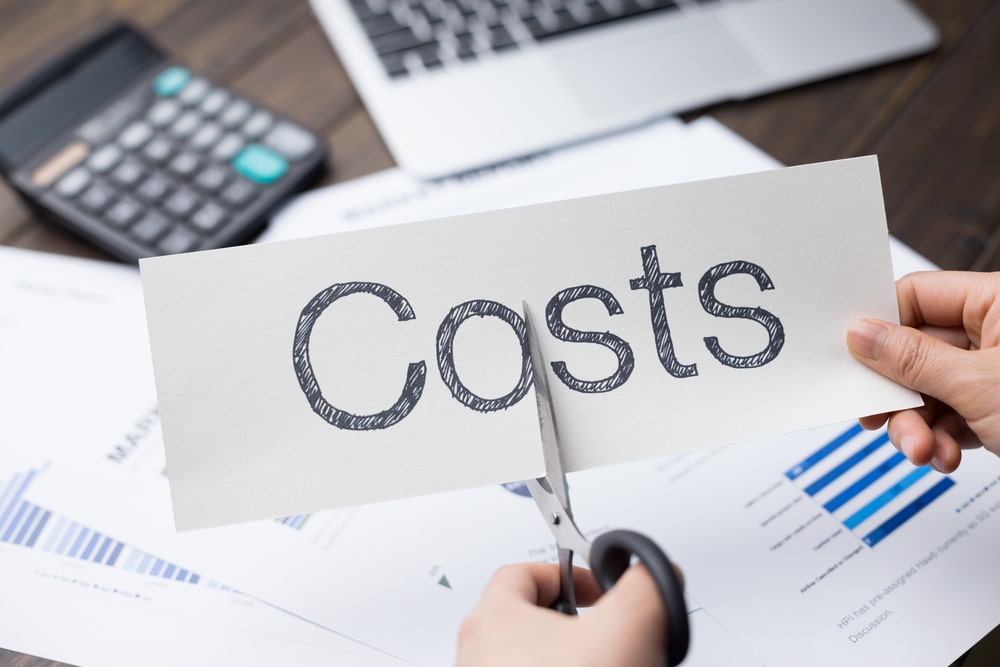There are more than a few ways to make a business purchase, whether you’re buying office supplies, inviting a client for coffee or paying for gas during a business trip. Instead of carrying cash that can be lost or stolen and having to save receipts (and deal with change), credit cards and debit cards are more convenient and secure methods of payment.
There are distinct advantages and disadvantages to both types of cards, especially related to what happens as a result of making a purchase. Below, we’ll delve into the details of and differences between credit and debit cards, especially from the perspective of a business owner.
What is a Credit Card?
A credit card provides a type of revolving credit, essentially making it possible to buy now and pay later. If the credit card balance is paid in full before the monthly due date, no interest will accrue, however interest will be accrued on any outstanding balance following the due date. As well, monthly minimum payments need to be made on an outstanding credit balance.
In order to apply for a credit card, you’ll need:
- A valid form of identification (e.g. a driver’s license)
- Your mailing address
- A credit score that qualifies you for the specific card
Additionally, an applicant must be at least 18 years old and may require a cosigner if they are under 21 and cannot prove their ability to make payments independently.
Advantages
When used responsibly, credit cards can be beneficial to your credit score and help with cash flow management. A few of the significant advantages offered by credit cards include:
- Flexibility with your finances, enabling you to purchase now and pay later
- Access to cash back rewards
- Legal protection against unauthorized charges
- A means of building credit, which can help when making larger purchases that require borrowing funds
Disadvantages
Although the perks are nice, credit cards aren’t without risk. Even if you use your credit card responsibly, credit cards have their drawbacks. Here are a few disadvantages of using a credit card:
- Interest will accrue on unpaid balances
- Usage may be subject to additional fees (e.g. foreign transaction fees)
- Failure to make minimum payments can hurt your credit score
- Keeping track of what you owe can be complicated and make it difficult to reconcile your finances
- Your credit card may not be accepted as a form of payment everywhere
What is a Business Credit Card?
Although a business credit card is similar to a personal credit card, there are a few differences. Business credit cards often have higher credit limits than personal credit cards, in order to support startup costs and operating expenses. A higher limit also means higher financial risk. While a business credit card can be a solution when cash flow is limited, you can end up in debt if you can’t keep up with payments. In addition, you’re personally liable for this debt, which is bad news for both your business and personal credit score.
Business credit cards also have more extensive application requirements. A few of the most common requirements include:
- Personal Information: Your full name, birth date, Social Security Number (SSN), contact information, annual income, and personal credit score
- Business Information: Business name, structure (LLC, S-Corp, etc.), number of employees, years in business, EIN (if relevant), and estimated monthly spending
Key Takeaways
- Credit cards enable you to borrow against a preset credit limit (based on income, credit history, etc.)
- Credit cards can be used to build credit
- Fees are charged for credit card usage, and any unpaid balance each month will accrue interest
- Credit cards can help with cash flow management, but involve risk if you fail to make minimum payments
What is a Debit Card?
A debit card enables you to spend funds directly from your checking account without relying on cash or checks. Rather than borrowing funds as is the case with a credit card, using a debit card means spending money you actually have. And while it won’t help build your credit score, a debit card involves significantly less risk as you aren’t borrowing against a credit limit to make purchases.
You are eligible to receive a debit card upon opening a personal checking account, which usually requires providing the following information to your bank:
- A valid form of personal identification
- Social Security Number
- Birth certificate
- Proof of address (lease, utility bill, credit card statement, etc.)
Advantages
Debit cards offer several advantages for helping you manage your personal or business budget with ease, including:
- Spending will not lead to debt, as you can only access funds available in your account
- Usage will not hurt your credit score
- Money spent via debit cards does not accrue interest
- Can be used in stores or to withdraw cash from ATMs
Disadvantages
Debit cards involve very little risk, but they aren’t without their drawbacks. Here are a few drawbacks to consider when using a debit card:
- Debit cards cannot be used to improve your credit score
- Your spending is limited by the funds available in your account
- Cash back rewards are not commonly available with debit cards
Why use a Business Debit Card?
A business debit card not only offers convenience without risk, but it avoids added complexity in your accounting. Funds spent with a debit card are deducted directly from your business checking account, so your account balance can be relied upon as an accurate reference for your financial standing, as opposed to having to factor in payments and interest (as required with a credit card).
As with a personal debit card, in order to receive a business debit card, you must first open a business checking account. Applying for a business account commonly requires providing the following information:
- Basic personal information
- Business information including the business name and EIN
- Additional business details and/or documents as requested
- A minimum starting deposit
Key Takeaways
- A debit card facilitates direct access to money in your checking account
- Debit card spending reduces risk to your business cash flow
- Using a debit card won’t impact your credit score or lead to accrual of interest
- A debit card allows you to withdraw cash from ATMs or receive cash back in stores
Bottom Line: Credit Card vs. Debit Card
Choosing between a credit card or debit card for your business depends entirely on the purpose of the card. If you’re looking for a way to build your personal or business credit, or need a way to borrow money for large purchases, a credit card is the right choice. However, if you’re looking to pay for business purchases directly from your checking account without complicating your bookkeeping or cash flow management, a debit card is the better option.
Opting for a business debit card doesn’t necessarily mean you lose out on the benefits offered by credit cards. With your Lili Visa® Debit Card, you can earn cashback awards on your business purchases when you link your card in Visa SavingsEdge, and benefit from fee-free overdraft protection, all while avoiding hidden fees and enjoying extensive fraud coverage. There is no minimum deposit requirement for opening a business checking account with Lili, and customers receive a digital card immediately upon opening an account, meaning you can focus on building your business without delay.
If a debit card like that sounds like something your business needs, consider opening a Lili account today!




